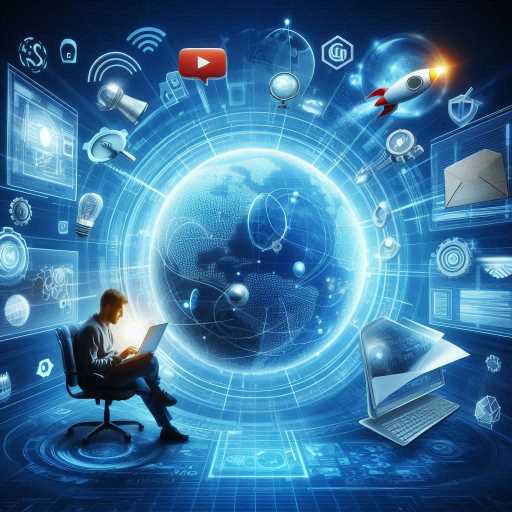Digital literacy and technology skills are becoming increasingly important in the modern world, both in the personal and professional sphere. As we move towards an increasingly digital and interconnected world, being able to understand and interact with technology effectively is critical.

Here are a few key areas within digital literacy and technology skills:

- Basic Computer Skills: These skills include being able to use a computer or smartphone, understanding how to navigate the internet, using word processing software, spreadsheets, and presentation software, and setting up and managing email accounts.
- Internet Literacy: This involves understanding how to use search engines effectively, assess the credibility of online sources, participate in online communities, understand social media dynamics, and be aware of digital etiquette.
- Cybersecurity Awareness: Understanding basic cybersecurity concepts such as creating strong passwords, identifying and avoiding phishing attempts, understanding the principles of secure internet connections, and knowing about personal data protection is increasingly essential.
- Digital Communication: This includes familiarity with different communication and collaboration platforms such as email, video conferencing tools (Zoom, Google Meet, etc.), instant messaging apps, and project management software.
- Software and Programming Skills: Knowledge of specific software tools relevant to your field (like CAD for designers or SQL for data analysts) is important. Basic coding skills are becoming increasingly valuable across a variety of fields.
- Digital Content Creation: This ranges from creating well-written blog posts and compelling social media updates, to more technical skills like video editing, graphic design, and website development.
- Data Management and Analytics: The ability to understand, interpret and work with data is a highly sought-after skill in many industries. This might involve using software like Excel to manage data, or more advanced tools for data visualization and analysis.
- Artificial Intelligence and Machine Learning: Basic understanding of AI and ML concepts, and how these technologies can be applied in various fields is becoming increasingly valuable.

These skills can open a world of opportunities, as they are applicable in almost every industry today, and are likely to become even more important in the future. Educational institutions, online courses, and self-learning resources offer ample opportunities to acquire and enhance these skills.
There are numerous online courses available for learning digital literacy skills. Here are some reputable platforms that offer courses on digital literacy and related topics:

- Coursera (www.coursera.org):
- Course: “Digital Skills: Digital Literacy” by Accenture
- Course: “Information Literacy: A Guide for the Information Age” by University of California, Irvine
- Udemy (www.udemy.com):
- Course: “Digital Literacy – Introduction to Computer Skills” by Paarth Desai
- Course: “Internet Skills for the 21st Century Workplace” by Udemy Instructor Team
- LinkedIn Learning (www.linkedin.com/learning):
- Course: “Digital Literacy” by Garrick Chow
- Course: “Learning Computer Security and Internet Safety” by Jess Stratton
- edX (www.edx.org):
- Course: “Digital Literacy and Online Etiquette” by University of California, San Diego
- Course: “Data Science for Executives” by Columbia University
- Google Digital Garage (learndigital.withgoogle.com):
- Course: “Fundamentals of Digital Marketing”
- Course: “Make the Most of the Web”
- Alison (alison.com):
- Course: “Digital Skills: Digital Skills for Work and Life”
- Course: “Introduction to Digital Literacy”




Leave a Reply